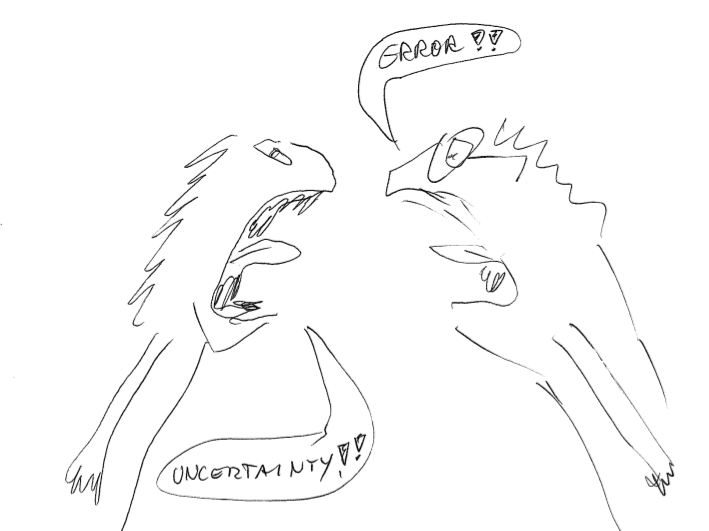Error or Uncertainty?

The Guide to the Expression of Uncertainty in Measurement stipulates that one has to use the term 'uncertainty' in many cases when one used to say 'error' before.The claim that these terms refer to different concepts is critically discussed in https://doi.org/10.5194/amt-15-1145-2022. In particular, it is investigated if and how the quantity under dispute can be quantified without reference to the true value of the measurand.
In the "Guide to the Expression of Uncertainty in Measurement"( JCGM 100:2008(E), https://www.bipm.org/en/committees/jc/jcgm/publications) it is claimed that the uncertainty of a measurement must be understood without any reference to the true value of the quantity to be measured, because the true value is neither known nor knowable. This argument is scrutinized by von Clarmann, Compernolle and Hase. Some of the key arguments against this claim are: A value of a quantity appearing in a definition needs not necessarily to be known. The measurement process is best understood as an inverse process. In this view, the Bayes theorem needs to be considered when the measured value is probabilistically related to the true value. The existence of relevant unknown error sources can be tested by validation studies.
